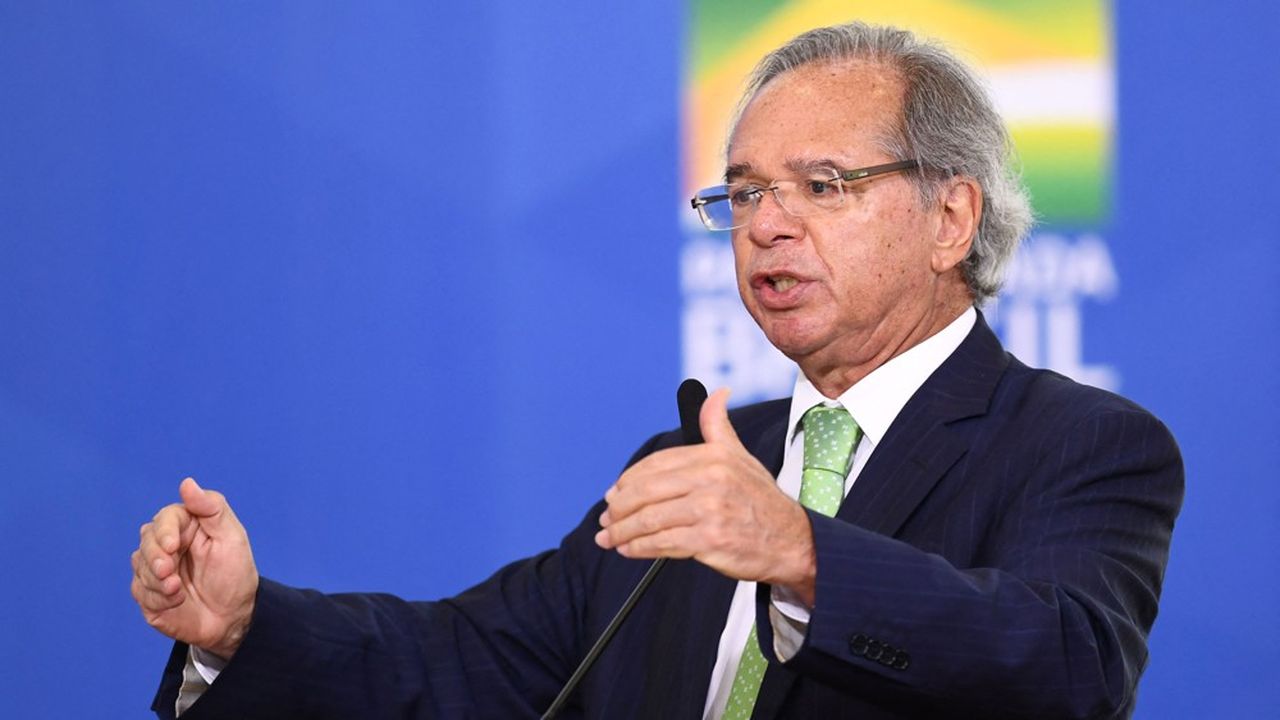“If you don’t help us, we’ll go somewhere else.” Traveling to Paris where his teams met with official representatives of the Organization for Economic Co-operation and Development (OECD), the Brazilian Minister of the Economy, Paulo Guedes, showed muscle to ardently defend his country’s accession to the organization.
“We are a country that shares the values and principles of democracy,” he insisted. This fall, the current president Jair Bolsonaro will try a second term where he should be opposed to the former president Lula who dominates him for the moment largely in the polls (43% to 26%) in a fight which will oppose extreme right and left. Paulo Guedes underlined the fact that Brazil is the only member country of the BRICS (Brazil, Russia, India, China and South Africa) to have voted, twice at the United Nations, against the aggression of Ukraine by the Russia.
Liberal democracies and Western civilization are losing ground. Emerging countries are moving fast
Observing that the GDP of the seven main emerging countries (Editor’s note: the BRICS plus Indonesia and Mexico) is higher than that of the industrialized countries of the G7, “liberal democracies and Western civilization are losing ground. Emerging countries are moving fast. As a result, a Brazil closer to OECD countries should be appreciated “at its true value, he explained on Tuesday at the Brazilian Embassy, during a press briefing.
“Geopolitically, we all have an interest in anchoring Brazil to the OECD as quickly as possible,” confirmed a source familiar with the matter. Even if it will take a little time given the many steps to go through.
On 29-30 March, the Minister of Economy of Brazil, Paulo Guedes, met with #OECD Secretary-General, @MathiasCormannmember representatives and Secretariat Directors to discuss the next steps of the process of accession of #Brazil to the organization and reiterate commitment. pic.twitter.com/ZHoOqSruap
— Carlos Marcio Cozendey (@CarlosCozendey) March 30, 2022
Historically, the South American country has been close to the Organization since 1998 before being recognized there, in 2007, as an essential partner. In 2017, the country’s candidacy for full integration was officially announced. Last January, alongside five other countries, the accession process was formally launched.
About 25 technical committees of the Organization will evaluate the various policies of Brazil in terms of health, work, taxation, the fight against global warming, exchange rates… These analyzes should be presented during the ministerial meeting of the OECD next June. In the aftermath, “probably in July” it is said in the entourage of the Brazilian minister, Brazil will present an initial memorandum on its intentions of political conduct in relation to the recommendations made by the OECD. “In the course of the second semester, the actual work for membership will begin”.
Tax projects
Many subjects are on the table. Starting with tax issues. The Brazilian system is quite far from OECD practices, in particular on transfer pricing issues which do not respect the arm’s length rule. For four years, work with the OECD has been underway to achieve a convergence of views. A bill to this effect is expected after the presidential elections are held in early October. Similarly, the Brazilian government is working on harmonizing its practices with those recommended by the OECD in terms of VAT.
On the vital subject of the future of the planet, in this case the fight against global warming and deforestation, the Brazilian minister assures that Brazil, much criticized for its environmental policy, intends to take part in the international effort . The country has also raised its commitments during at COP 26 in Glasgow. Brasília is considering the creation of a carbon market, the implementation of a carbon tax and a system of payments for environmental services which, for example, would remunerate farmers for actions contributing to restoring or maintaining ecosystems.
We want to be an integral part of the solutions in the fight against climate change with the OECD. We don’t wanna be a problem
At the same time, Paulo Guedes assures that the government has tripled the budget to fight against illegal deforestation in the country.
“We want to be part of the solutions in the fight against climate change with the OECD. We don’t want to be a problem, ”assured the minister. The latter thus praised the fact that Brazil has invested heavily in the green economy. In a few years, we have gone from zero to 15% of energy produced by wind turbines, solar panels or hydraulics. Today, 75% of our energy is clean and we want to be a major player in the transition to a low-carbon economy” in accordance with the principles defined by the OECD. Clearly, the Minister sees no obstacle to Brazil’s entry into the restricted circle of OECD member countries.
–


